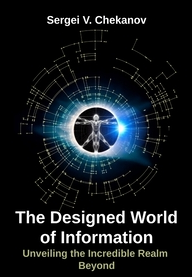 | Science, Technology and Computation |

The problem of missing people on the Internet
July 26, 2024 Reading time: 9 minutes
If you are a frequent Internet user, you may notice an interesting phenomenon: a mismatch between your expectations of how many people should be engaged in various issues, and the actual reality. This situation is especially common on social media. For example, I recently joined a Facebook group with about 5 million members, but when I looked at the group's activity, I saw only about 10 people asking questions and making comments.
The same was true for Reddit. Conduct a test: go to Reddit and examine discussions in communities with over 200,000 members, where more than 50 members are online. You will hardly see any comments, and the ones you do see are often generic, like "Aha!" Recently, I tested this by posting a message in the group "MeaningOfLife," which has about 4k members. I was thrilled to receive one comment, but the group seemed completely inactive otherwise.
Next, visit Reddit's main page. You'll likely notice that 100% of the most popular posts are mundane, and honestly, quite silly, such as, "My girlfriend got a terrible haircut and she's crying," which garner thousands of comments and upvotes. While I suspect many of these comments and upvotes are from bots, it still raises questions. Why does this happen? Who is steering our civilization into such a state of being? Programmable bots? But who programmed them?
Publish
February 22, 2024 Reading time: 3 minutes
JWork portal can be used to post articles and blogs using the categories listed on the right side of the webpage. This page describes the requirements for JWork articles, and how to give your articles or blogs the perfect permanent home.
Requirements for JWork's article
The articles and blogs can contain up to:
- 3 dofollow links to external web sites.
- 3 images (that need to be directly uploaded).
Blogs related to adult or hate content are not allowed. All blogs stay permanently (without expiration dates). We strongly suggest to add the author name at the end of the blog (in italic).
How to add an article or a blog
For submission of articles and blog to https://jwork.org, please use the Enhub decentralization platform. Go to Enhub.org editor, and write your article using the HTML editor. After you finish writing the article, send the 7-character pin to science [AT] jwork.org and ask for publication. The 7-character pin access your article using Enhub.org article access page.
Our editors will inform you whether your blog has been accepted. If accepted, you will be required to pay $20 (refer to the "Payments" section). Our professional editors will then review your blog, format it into clean HTML code, properly extract and upload images to the jWork server. Typically, the blog will appear in https://jwork.org/ in 1-2 days after the payment.
Note that all articles will be checked by our editors. If an article does satisfy our quality standards, it will be rejected for publication, before accepting the payment.
The most common mistake when creating blogs is to copy-and-paste DOC/DOCX documents into the WYSIWYG HTML editor. This approach creates badly formatted HTML with many style tags that need to be removed by hand. Normally, blogs should only contain <P>, <H1>, <H2>, <IMG>, <A> tags. Use some automatic tools such as https://www.htmlwasher.com/
Tips: A first indication that your blog contains too many unnecessary style tags and/or images are not correctly inserted (i.e. they are not uploaded as files to JWork) is the very large read time (shown below the title when you view the article).
Payments:
All payments should be sent via PayPal. We will send the PayPal link only if we confirm that your article will be published.
Copyrights
jWork.Org does not own copyright on submitted blogs. The blogs are released under the Creative Commons Attribution-Share-Alike License 3.0.
See also our Disclaimers.
Contact: science@jwork.org
Disclaimers
February 22, 2024 Reading time: ~1 minute
The information contained herein is subject to change without notice and is not warranted to be error-free. If you find any errors, please report them to us in writing.
Limitation of Liability
In no event and under no legal theory, whether in tort (including negligence), contract, or otherwise, unless required by applicable law (such as deliberate and grossly negligent acts) or agreed to in writing, shall the JWork team and its contributors be liable for damages, including any direct, indirect, special, incidental, or consequential damages of any character arising as a result of this License or out of the use or inability to use the Work (including but not limited to damages for loss of goodwill, work stoppage, computer failure or malfunction, or any and all other commercial damages or losses).
JWork has a regular backup. We will do everything possible to restore JWork in the case of technical problems. Our team shall not be liable for any loss of user's content due to technical problems or edits by the JWork users.
Contact: science@jwork.org
How to write a book using Google Docs
February 21, 2024 Reading time: 2 minutes
Recently, I've posted some instructions about how to write a book using Google Docs. I just wanted to share my experience with this approach of creating large books. Now I'm writing a new book and I had to learn quite a lot about how to do this in Google Docs.
About
February 21, 2024 Reading time: ~1 minute
Our mission is to promote scientific computing for science and education. We believe any knowledge software should be free and accessible for education and research. It should be available on all platforms for all people. Computers and scientific programs help to uncover the world around us. We pledge for sharing scientific algorithms and tools. If you are a professional, contribute with your code here. If not, use our software to learn how to use computers for education and knowledge discovery
jWork.ORG was founded by Dr. S.Chekanov in 2005. Now we are a community of developers and users focusing on scientific and numeric algorithms and programs, primarily written in Java (but not only).
We are a small non-profit. We survive on donations and membership fees that go to web services, documentation projects and user support.
Please contact us at science [AT] jwork.org
Statistics and simulation show that wealth is just pure luck
February 21, 2022 Reading time: ~1 minute
A recent article "Talent vs. Luck: The Role of Randomness in Success and Failure" published in Advances in Complex Systems Vol. 21, No. 03n04, 1850014 (2018) (arxiv.org/abs/1802.07068) shows that, according the a new computer model of wealth creation, the most successful people are not the most talented, just the luckiest. The developed computer model accurately reproduces the wealth distribution in the real world. One of the most important conclusions of this simulation is that the wealthiest individuals are not the most talented (although they must have a certain level of talent). They are the luckiest.
